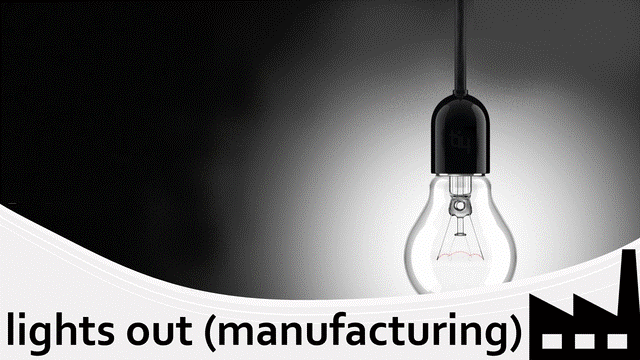Lights-out manufacturing is rapidly becoming a cornerstone of modern industrial processes, enabling factories to operate with minimal or no human intervention. Often referred to as dark factories, these highly automated facilities are pushing the boundaries of efficiency, consistency, and productivity. As companies strive to stay competitive in a global market, embracing autonomous production through lights-out manufacturing is increasingly seen as a crucial strategy for success.
The Rise of Lights-Out Manufacturing
Lights-out manufacturing refers to the practice of running production processes entirely autonomously, often without any workers on-site. The concept of the dark factory—a factory that can literally run in the dark because no human operators are needed—exemplifies the ultimate goal of lights-out manufacturing. This approach leverages advanced robotics, machine learning, and artificial intelligence to maintain continuous production, even during off-hours like nights, weekends, and holidays.
Autonomous production systems are designed to operate around the clock, ensuring that machinery is utilized to its full potential. By reducing or eliminating the need for human intervention, companies can lower labor costs, increase production capacity, and improve product quality. Moreover, the precision of robotic systems ensures a level of consistency that is hard to achieve with human labor, leading to fewer defects and higher overall quality.
The Promise of Lights-Out Manufacturing
Lights-out manufacturing allows factories to maximize production capacity by operating non-stop, even during nights, weekends, or holidays. The benefits are clear:
- Increased Efficiency: Automated systems can operate without breaks, leading to higher throughput and faster production cycles.
- Consistency and Quality: Robots and automated systems provide precision and consistency that are difficult to achieve with human labor, reducing errors and waste.
- Cost Reduction: By minimizing the need for human intervention, companies can significantly reduce labor costs and shift resources towards innovation and expansion.
However, the success of lights-out manufacturing is not without challenges. The absence of human operators on-site means that when something goes wrong—such as a gas leak, liquid spill, or vapor alarm—the system must respond instantly and effectively to mitigate risks and minimize downtime.
The Critical Role of RapidReach in Lights-Out Manufacturing
While lights-out manufacturing and dark factories offer numerous advantages, they also introduce new challenges, particularly in emergency situations. In a fully autonomous production environment, where human presence is minimized or nonexistent, the ability to quickly respond to alarms and system failures is vital. This is where RapidReach, an automated notification system, becomes essential.

Why RapidReach is Essential in a Dark Factory
Instantaneous Alerts: In the event of a gas leak, liquid spill, or vapor emission, RapidReach provides immediate notification to the appropriate management and safety teams. This rapid communication is crucial in a dark factory, where time is of the essence to prevent minor issues from escalating into catastrophic events.
Minimizing Downtime in Autonomous Production: A key benefit of lights-out manufacturing is its ability to operate continuously. However, unexpected shutdowns—triggered by safety alarms—can lead to significant financial losses. RapidReach minimizes downtime by ensuring that the right personnel are informed and can take action quickly, thereby reducing the duration of any production halt.
Enhanced Safety and Compliance: In industries with stringent safety regulations, compliance is non-negotiable. RapidReach helps companies adhere to these regulations by ensuring that all incidents are logged, communicated, and resolved in a timely manner. This not only protects employees and assets but also helps companies avoid costly fines and legal issues.
Efficient Crisis Management: In a dark factory, effective crisis management is essential. RapidReach enables two-way communication, allowing management to coordinate responses efficiently, track progress, and ensure that all necessary resources are deployed to resolve the issue. This capability is particularly important in complex autonomous production environments where multiple systems and teams may need to be engaged simultaneously.
The Future of Manufacturing
The adoption of lights-out manufacturing, dark factories, and autonomous production is expected to accelerate as technology advances and the benefits become more evident. By integrating reliable communication systems like RapidReach, companies can ensure that their autonomous operations remain safe, efficient, and compliant with industry regulations.
As more industries move towards automation and the implementation of dark factories, the importance of quick and effective response systems will only grow. RapidReach is not just a tool for crisis management; it is a critical component of a successful lights-out manufacturing strategy, ensuring that companies can reap the full benefits of autonomous production while mitigating the risks associated with minimal human oversight.
In conclusion, lights-out manufacturing and the concept of the dark factory represent the future of industrial production. By embracing autonomous production and implementing robust communication and safety systems like RapidReach, companies can achieve unparalleled efficiency, reduce costs, and maintain the highest standards of safety and quality in their operations. As this trend continues to grow, those who adopt these technologies will be well-positioned to lead the way in the next era of manufacturing.
